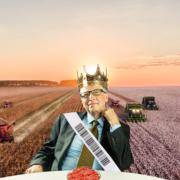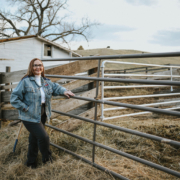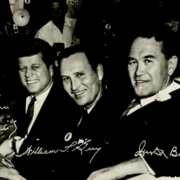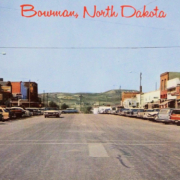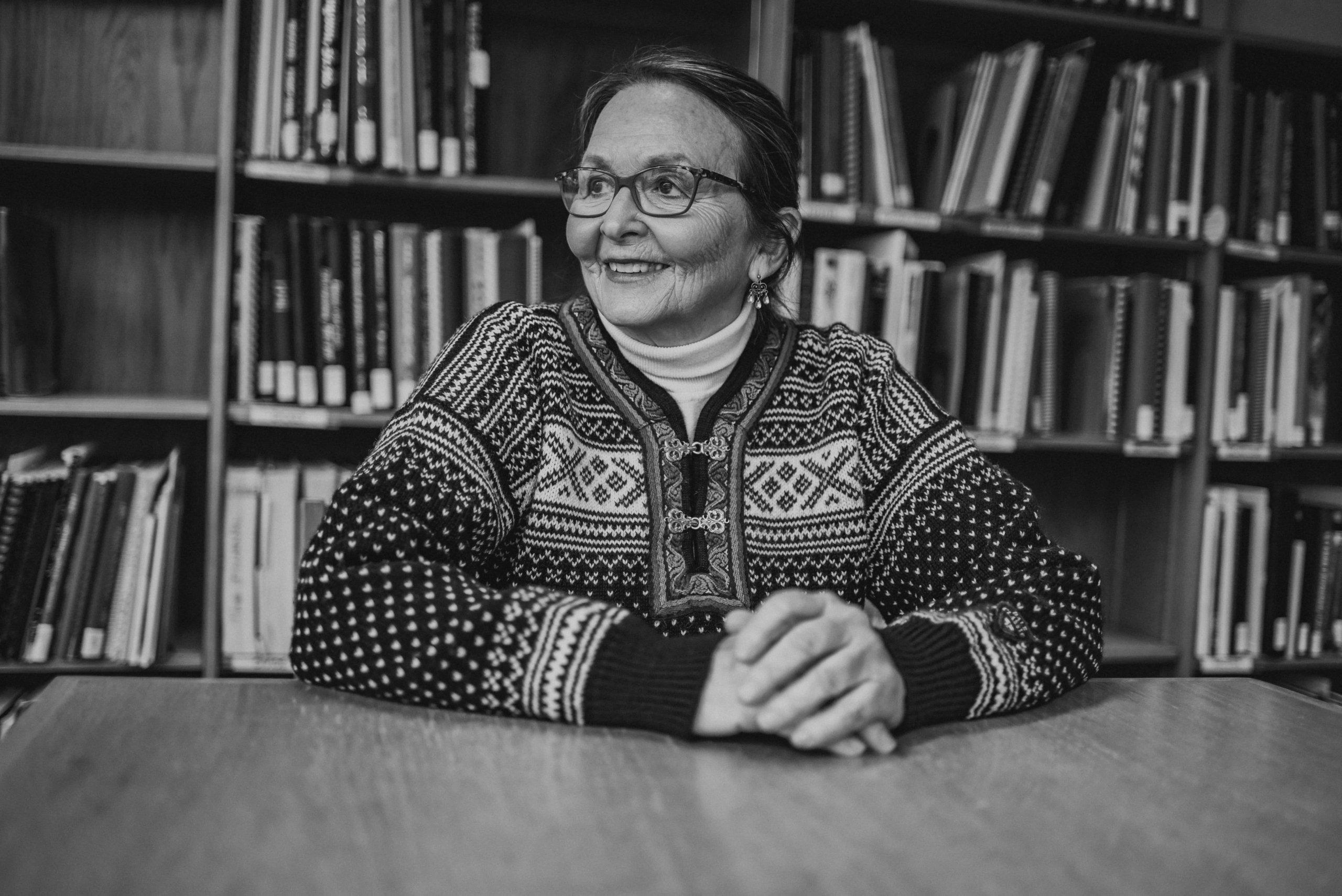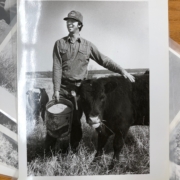Tag Archive for: North Dakota
By now, it is pretty clear that entities linked with Bill Gates are buying farmland in North Dakota. It is also pretty clear that Drew Wrigley, appointed as North Dakota’s Attorney General by Governor Doug Burgum, isn’t interested in enforcing North Dakota’s anti-corporate farming law, North Dakota Century Code, Chapter 10-06.1.
I’ve called this law the soul of North Dakota. It was passed by initiated measure in 1932 during the depths of the Great Depression of the 1930s. It is now at risk and here is why.
In 2016, Willie Nelson and I wrote an essay “Measure 1 Is About the Soul of North Dakota.” It was about saving the North Dakota anti-corporate farm law. Six years later, this law is again at risk. And, this time the risk comes from an unexpected source.
A few days ago, while researching early Nonpartisan League history, I fortuitously came across a speech by Massachusetts Senator John F. Kennedy delivered in Fargo, North Dakota on June 19, 1960 at North Dakota Senator Quentin Burdick’s birthday dinner. A month later, Kennedy was endorsed for President by the national Democratic Party, where incidentally he received all the North Dakota delegate votes. That November, Kennedy won the national election. He was sworn in as president of the United States on January 20, 1961.
Like many North Dakotans my age, I have vivid memories of the thriving rural North Dakota downtowns of my childhood. Bustling stores with picture window displays lined Main Street. There were usually two law firms in each town so as to be able to represent both sides of disputes, several doctors and dentists, banks, grocery stores, and gas stations, one of which was always a Farmers Union Oil Cooperative. Each little town would have multiple churches: one was Lutheran, one was Catholic, and one maybe Methodist or Baptist. At the edge of town, multiple grain elevators towered near the railroad tracks, visible from miles away as farmers brought their harvests to town, brought their kids to school, purchased supplies, and sought fellowship.
In the early 1980s, those Main Street businesses, churches, and elevators were still buzzing. The “good years” for farming and ranching in the 50s, 60s, and 70s helped to keep a vibrant rural economy humming.
Here are some close-to-final draft comments I will be sending to the North Dakota Ethics Commission on proposed rules. I think these rules are very poorly written and ill advised. I’m sharing these draft comments on my “blog” because I hope others who read this post will also weigh in with the Ethics Commission and send their own comments and write letters to the editor. This is serious stuff! THE DEADLINE FOR PUBLIC COMMENTS IS FRIDAY, DECEMBER 10: ethicscommission@nd.gov
The letter below will be the first of two comments from me. The next comment will include a deeper dive into the legal errors in the Attorney General’s advice to the Ethics Commission. Believe it or not, the Attorney General has given the Ethics Commission advice that campaign donations should be flat-out exempted from the definition of a “significant financial interest” that would give rise to a finding of a conflict of interest. Stay tuned… and write your own comments, please.
The future of North Dakota’s clean air, clean water, economic democracy, and civic life may depend on our voices.
Read more
In 1982, I met Mark Ritchie and he introduced me to Jim Massey, a legal services lawyer from Minnesota. At the time, I was representing family farmers in their appeals against the Farmers Home Administration, and I was getting frustrated by the biased administrators and the flawed appeal process. I told Jim about the legal theories I was developing to get an injunction against FmHA and I showed him a rough draft of my draft class action complaint. Jim was very supportive! This encouragement meant a lot to me because back then every other lawyer I’d talked to thought I was crazy.
Jim began to do educational outreach first in Minnesota and then to legal services offices nationwide. As set out in the Our History section on FLAG’s website, this is what happened later:
In the summer of 1985, Jim Massey received a phone call from Willie Nelson inviting him to attend the first Farm Aid concert. By the next spring, the first funding check arrived in Jim’s office, signed by Willie Nelson himself, to start a nonprofit law firm with a single mission: Help family farmers stay on their land. It was an investment that helped create Farmers’ Legal Action Group, Inc. – FLAG.
Read Sarah’s new Lit Hub essay:
“On Jay Gatsby, the Most Famous North Dakotan”
Sarah Vogel Traces the Humble Midwest Origins of an Iconic Character
In the spring and summer of 1982, the national media began to hear of the farm crisis. Reporters and producers on the coasts went on a hunt for stories that illustrated the farmers’ plight. I was getting calls almost daily from the Washington Post, the New York Times, Newsweek, the Los Angeles Times, and many others.
When they said, “I want to do a story about a foreclosure sale! Do you have any coming up?,” I was furious.
“I’m a lawyer fighting foreclosures!” I’d snap back. “I haven’t lost one yet, and I don’t intend to lose any. I’m doing everything that I can to stop foreclosures and forced sales against my clients. But if you want to watch a foreclosure, just come to North Dakota, pick up a copy of the Fargo Forum’s Friday agriculture supplement, and you’ll find pages and pages of auction sales and some foreclosure sales. Don’t call me again!”
A different kind of call came in the summer of 1982 from a reporter from Life magazine.
“Hi, I’m Richard Woodley, and I’d like to see what it is like for a farmer who is suffering from financial stress.”
I agreed to introduce Woodley to any of my clients who were open to talking to him. Soon, Richard and a photographer, Grey Villet (famous today for his photographs of the Loving couple in Virginia), showed up and set up camp in a Bismarck motel with a rental car, and an apparently unlimited budget.
Day after day, they came to my windowless basement office and I gave them directions on how to get to the farms and ranches of clients whose farms and ranches were within a half day’s drive of Bismarck—after getting an “OK” from the farmers. Richard and Grey went out, came back, visited with me, and even accompanied me on a trip to see a client (which was a bonus for me—they had an expense account to pay for the gas!).
Richard told me that they had visited with his editor and had presented an alternate story idea: instead of having the story be about the farmers, it would be a story about my work, as the farmer’s lawyer. “Would that be OK with you?”
“Yes,” I said. “If you and Grey will drive.”
That summer, they followed me to a picnic in Wolford, 170 miles north of Bismarck. I brought a stack of questionnaires with me. My class action was only in handwritten form, but I could “see” its eventual outlines in the same way that Grey could “see” the photographs he would eventually take and Richard could “see” the story he would eventually write for Life magazine. I had a stack of questionnaires for the farmers to fill out when we got to the farm. I was on the search for lead plaintiffs.
There were about fifteen farmers at the picnic that day and one of them was Dwight Coleman, who farmed in the Turtle Mountains, near the Canadian border. Dwight was a beginning farmer—he’d borrowed from the Farmers Home Administration in 1979, but by 1981 he’d fallen behind on his loan payments due to a series of catastrophic events, and instead of standing by him (as the agency had done with farmers during the Great Depression), they were threatening foreclosure if Dwight didn’t pay his full loan balance by Christmas Eve.
It was one of the cruelest stories I’d heard about FmHA’s tactics.
“I was under the impression that this beginning farmer program was supposed to be for more than two years,” Dwight said. He tried to fight back. “I said this is not right: you’ve got your appeals board and they’re the same people who were on the foreclosure board. What kind of a goddamn kangaroo court is that?”
Dwight first heard of me at another farmer’s auction sale.
“I didn’t know it was happening to everybody,” Dwight said. “I thought it was just myself.”
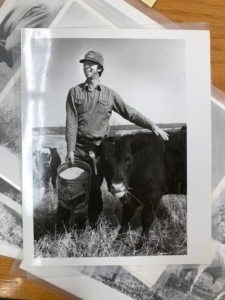
photo by Greg Booth
That day at the picnic, I told Dwight that a class action was a way to have a few “lead plaintiffs” represent and protect many other people who were in a similar situation (the class). I told him I needed to find class representatives to represent the 8400 farmers who were borrowers from FmHA.
Dwight was in. Here’s how he put it in his own words, when I interviewed him in 2019.
And because I listed the lead plaintiffs alphabetically in the complaint, Dwight Coleman’s name will forever be associated with Coleman v. Block.
(Secretary Block, by the way, was called “Auction Block” back in those days.)

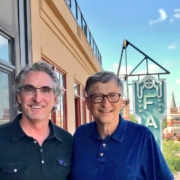 KVLY
KVLY